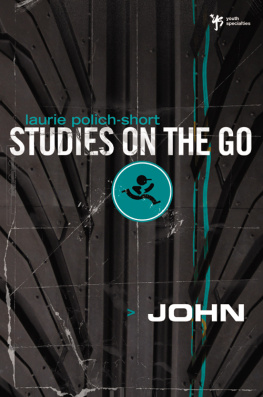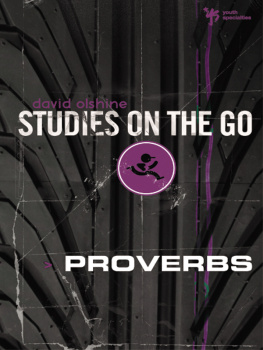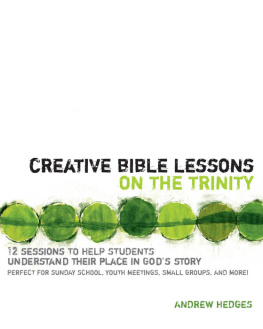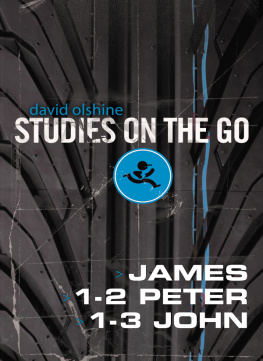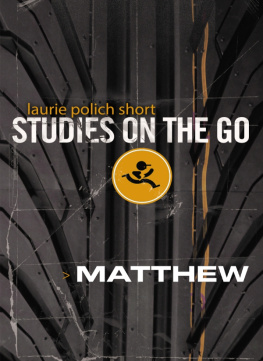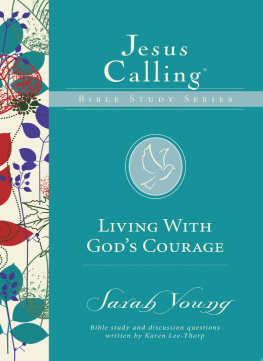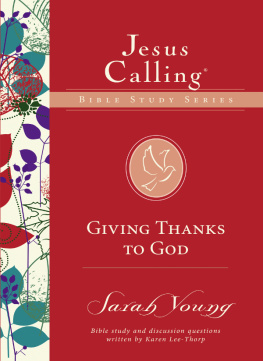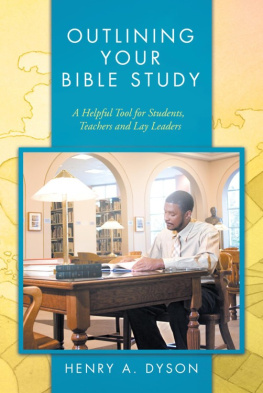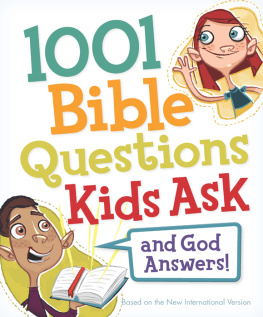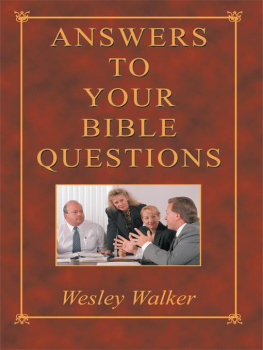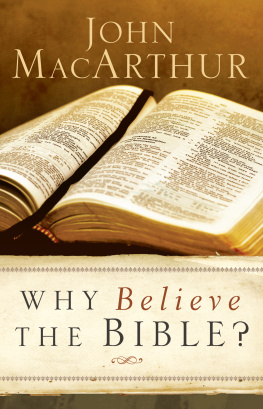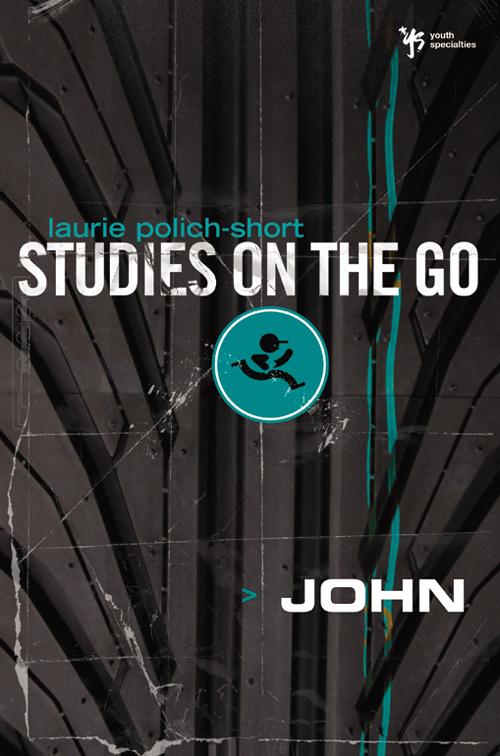Questions have the power to change people. Thats what makes them so important. Through his questions, Jesus inspired people to receive healing they didnt know they needed, confront struggles they didnt know they had, and expose secrets they didnt know they kept. And Jesus invites us to that same ministry today. Thats what makes your partnership with this book so exciting.
Youll notice three kinds of questions in these studiesObservation, Interpretation, and Application. Observation questions take your students to the text (their answers come from the Scripture). Interpretation questions lead your students through the text (their answers come from what their brains are telling them about the Scripture). Application questions help your students live the text (their answers come from how they apply the Scripture). Each study is prefaced by a short introduction that gives shape and form and context to the study. The sessions begin with sharing questions (designed to break the ice) and end with group exercises (designed to bring the lesson home). There are also reproducible quiet time sheets after each study for students who want to dig deeper into the session on their own. (As always, do what suits your group and your schedule the best; you dont have to use every question in the book, and you can feel free to add to them or alter them.)
Overview: The first 18 verses of the Gospel of John are a bit like the beginning of a musical, where the orchestra plays an overture of the songs will be heard throughout the show. Here John introduces the themes of his Gospel, and he will explain and emphasize each theme as the Gospel progresses. The first theme to unfold is the role of John the Baptist.
We find perhaps the best synopsis of Johns ministry in verse 7: He came as a witness to testify concerning that light, so that through him all men might believe (emphasis added). Many Israelites believed in John and his ministry, but instead he led them to believe through himso that they directed their belief toward Christ.
John the Baptist is the prime model of a witness to all believerssetting the example that through us we always point people to Jesus. This session will reveal how.
SHARE
Warm-Up Qs (use one or more as needed depending on your group)
1. What do an understudy, best man, and maid of honor have in common?
2. Have you ever been second place? Was the experience good or bad? Why?
3. Have you ever had a good friend who was better than you at something? Without naming names, how did (does) it affect your friendship?
OBSERVE
Observation Qs
4. Read John 1:1-9. How is Jesus introduced in this passage? How is John introduced? What is the difference between them?
5. What was Johns purpose for coming to this earth? (v. 7) Who sent him? (v. 6)
6. Read vv. 15-28. What does John say about Jesus in v. 15? What does he say about himself?
7. What does John the Baptist say to the priests and Levites in v. 20? What do they ask him next? How does John finally respond in v. 23?
THINK
Interpretation Qs
8. Read vv. 8, 15, and 20. Based on these verses, do you think people believe that John is greater than Jesus? Why or why not?
9. Look at vv. 19-27. Which of the following words best describes John the Baptist? Strong Weak Humble Conceited Strange Insecure What ideas in the passage led you to choose the word(s) you did?
10. Look ahead at John 3:28-30. Based on what youve read in chapter 1 so far, why do you think John uses the illustration in this passage to describe his relationship to Jesus and role in the gospel story?
11. How do you think John felt about his role? Do you think he envied Jesus? Why or why not?
APPLY
Application Qs
12. How is John the Baptist a role model for us? What do we learn from him?
13. On a scale of 110, how good are you at letting other people shine? Can you be happy for others, or are you bothered when others get attention?
1 2 3 4 5 6 7 8 9 10
Bothered by others success Happy for others success
14. How good are you at letting God shine? Do you feel like you point people to God with the things you say and do? Why or why not?
15. Whats one thing you can do this week to point someone to God?
DO
Optional Activity: In this session John the Baptist is a signpost, pointing people to God. While he attracts attention with his words and life, he leads people to turn their attention to Jesus. If you made a sign that represented you as a Christian, what would it look like? Would it be big and obvious? Small and subtle? What words would be on it? Any pictures? Draw a sign that best describes you as a Christian and share it with your group.
Day 1: John 1:1-5
1. What word or phrase stands out to you from this passage? Why?
2. How is this passage similar to Genesis 1:1? How is it different?
3. Spend time today thinking about how you have experienced life and/or light in your relationship with Christ.
Day 2: John 1:6-9
1. What word or phrase stands out to you from this passage? Why?
2. What was Johns purpose here on earth? How is it similar to ours?
3. Spend time today thinking about how you have been a witness to the light of Christ.
Day 3: John 1:10-14
1. What word or phrase stands out to you from this passage? Why?
2. According to this passage, how do we become children of God? Have you become a child of God?
3. Spend time today thinking about being Gods child and what it means to you.
Day 4: John 1:15-18
1. What word or phrase stands out to you from this passage? Why?
2. How could Jesus have come before John if Jesus was born after John? What do you think this means?
3. Spend time today thinking about what we learn about God (and how we view God) through Jesus.
Day 5: John 1:19-28
1. What word or phrase stands out to you from this passage? Why?
2. Who do people think John is? Who does John say he is?
3. Spend time today thinking about Johns resolve to carry out his mission, and how its an example to us.

